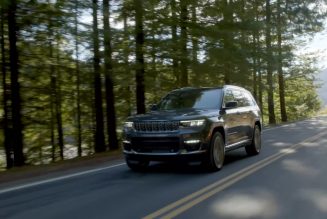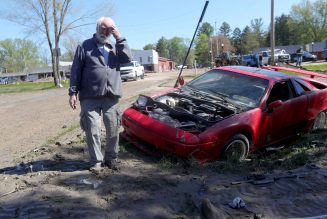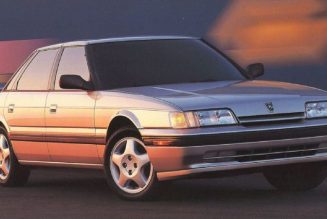Fifty years after Tom McCahill invented “zero to 60,” it remains the road-test’s benchmark number. Simple to understand, easy to compare, McCahill’s 0-to-60-mph yardstick captured the public’s imagination. Bolstered by frequent use in automotive advertising, nought-to-sixty took on a significance way beyond its true value. Nobody cared about other figures. Forget quarter-mile times, esoteric 45-to-65-mph passing numbers; only top speed gets close to resonating with enthusiasts in the same way.
Thomas Jay McCahill’s first road test, on a 1946 Ford, appeared in the February 1946 issue of Mechanix Illustrated magazine. Readers soon learned that, as well as his elementary, much quoted 0-to-60 time, McCahill provided irreverent, vibrant words that made the car live for the reader. McCahill entertained, combining a quick—if sometimes corny—wit, exaggerated metaphors and similes, and a stimulating and original writing style with serious foundations. You always knew if a new model met with his approval. McCahill didn’t believe in hiding behind euphemisms. Of the new 1949 Dodge with Gyro-Matic transmission, which advertising claimed was the greatest improvement in 39 years of Dodge history, Tom wrote, “It’s a dog.”
Only McCahill could write of the Jowett (a long-forgotten British marque) Javelin’s ashtray, “It looks like it was invented by Lord Whiffenpoof after he was shot in the rump during the Boer War. Like the cup your favorite dentist tells you to spit your teeth into, it hinges out but spends most of its time just rattling.”
To a reader who needled McCahill in his popular MI “Mail for McCahill” column, saying, “I suppose you consider yourself the best automotive writer in the world.” Tom replied: “I certainly do not, and no other automotive writer can consider himself the best as long as Terwilliger Muffinpuss is alive. There is a writer who gets to the soul of things.”
“I quote from his recent test of the Bentwater Biscuit Six, ‘Satisfactory mechanized transportation will be enjoyed by owners of the Bentwater Biscuit Six. Its lateral stability negotiating rounds and its ascending properties on vertical curves, not to mention its get-underway dash, are truly astounding. ‘”
Tom McCahill loved cars and knew they were fun, but before MotorTrend and the other enthusiast titles hit their stride, his words could make or break a new model. In 1956, Packard president Hugh Ferry told Tom, “We never really liked you, but we always respected you.”
“It was,” said McCahill, “the finest compliment I ever received.”
McCahill was born into a wealthy New York family in 1907. His father was manager of the local Mercedes branch, and there were always interesting cars around. Tom was given an old Winton when he was 14. After rebuilding the car, he promptly bent it around a tree. He became a salesman for Marmon, and in the mid-1930s opened a garage in Manhattan and later another in Palm Beach specializing in Rolls-Royces and other exotics. However, the Great Depression ruined the business. Tom took up freelance writing, turning out fiction and articles for Popular Science and The Reader’s Digest, before getting the idea readers might like some facts and figures about new cars.
Selling the concept to MI was easy; getting carmakers to agree quite another matter. Several told him, “We test our own cars and aren’t interested in outside opinion.” To get around the problem, Tom pretended to be a photographer and borrowed the cars anyway. After the first few tests appeared, the manufacturers cooperated, launching the career that made McCahill King of the Road Testers and his dog, Labrador Joe, a common sight at motoring events around the world.
Tom’s fondness for Nash once led to a request for a testimonial for the new Ambassador. The reply came after a long pause, “It handles like the Queen Mary,” he announced. Amazingly, the insult sold cars. “Many people seemed to want a car that handled like the Queen Mary,” he said. He was one of the only journalists ever to drive the Tucker, having run Preston Tucker on a dare, never believing he would get to drive the car Detroit was convinced was a non-runner. McCahill was impressed: “The best-performing automobile in America by far,” he wrote.
Between 1946 and 1975, when he died, Tom road-tested more than 600 cars and, together with Ken Purdy, helped make car fanatics of two generations of enthusiasts—who still reckon a car’s performance is best demonstrated by its 0-to-60-mph figure.
This article was originally published in July 2006. Photography by ISC Images & Archives via Getty Images and the MotorTrend Archives.









